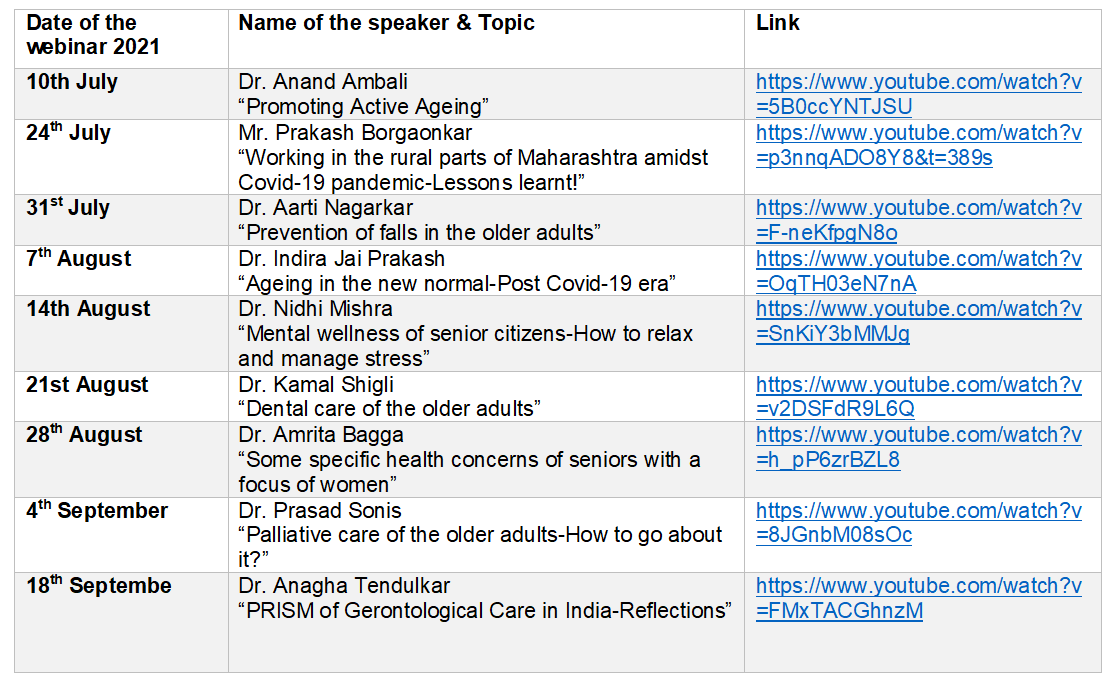8th October 2021
Due to the COVID-19 pandemic and subsequent restrictions on social gatherings, ILC-I have been working online since April 2020. In order to stay connected with seniors as well as researchers, doctors and students working on ageing, ILC-I has conducted eighteen webinars, supported under CSR, as part of a national webinar series.
After adapting to working online, ILC-I ran a national webinar series from December 2020 to April 2021 and from July 2021 to present. All eighteen speakers are well-known scholars in the field of ageing. From May 2021 to June 2021, ILC-I organized a state webinar series which was conducted for the participants in Maharashtra; one of the largest states in India.
Initially, the COVID-19 pandemic was the focus of each session, but slowly ILC-I began to focus more broadly on ageing and health. Although they have receiving a good response from participants across India, ILC-I are looking forward to getting connected to more participants, especially students from universities in the North, South and East of India.
The table below contains the topics and the name of the speakers and a link to their respective session, available on ILC-I’s YouTube channel.

Reflections from the ILC GA Co-Presidents as they conclude their term
At the January meeting of the ILC Global Alliance, Co-Presidents Julie Byles and Margaret Gillis reflected on the achievements of the Global Alliance during their tenure as presidents from 2021-2025, before handing over the torch to two newly elected Co-Presidents.
12th January 2026
Prof. Dr. Tineke Abma on the value of elderly participation
Older adult participation provides unique insights, strengthens democratic processes, and enhances ownership of initiatives. Practical approaches like the FIRST model support meaningful engagement in policy, care, and research.
23 December 2025
Inclusive ageing: Tackling loneliness among older migrants through participation and co-creation
Older migrants in the Netherlands are particularly vulnerable to loneliness due to health, financial, and migration-related challenges. The Together against Loneliness intervention shows how a culturally sensitive, co-creative approach can strengthen social bonds and improve well-being.
18 December 2025


